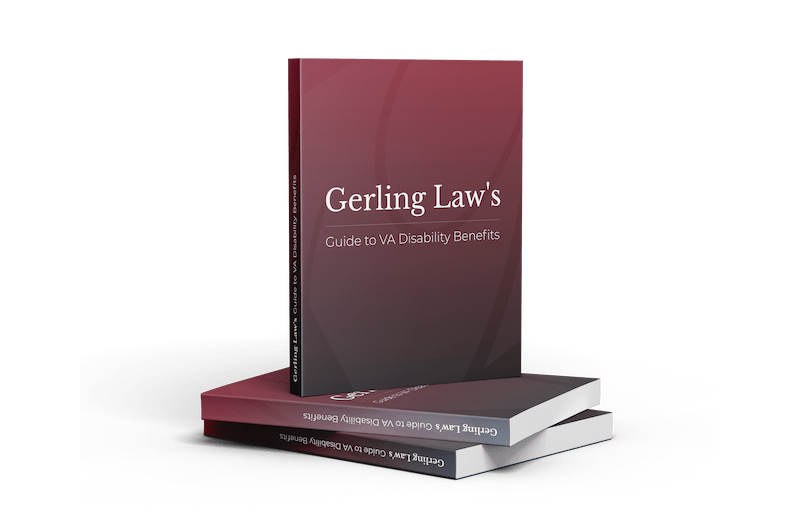The Veterans Benefits Affairs (VBA) claims process is a lengthy and daunting process that often raises uncomfortable emotions related to a person’s service, injury, or resulting illness.
Although the VBA touts its benefits, the reality is that many service members are ultimately left with little to no recourse for the damaging effects of their service.
Some physical injuries can be traced directly to a military event. But some of the most catastrophic service injuries relate to the psychological aftermath of a traumatic experience.
Many of these experiences result in post-traumatic stress disorder (PTSD), which can drastically inhibit a service member’s quality of life and everyday activities.
Generally, under the VA standard, those who serve in the armed forces and who receive a discharge “under conditions other than dishonorable” are eligible for VA benefits.
You may be wondering, Are there reasons my VA PTSD claim was denied? The answer is yes — the VA denies meritorious PTSD claims for many reasons.
Why Are PTSD Claims Denied?
Under 38 CFR § 3.304(f), service connection for PTSD requires medical evidence diagnosing the condition under 38 CFR § 4.125(a).
You must provide medical evidence that there is a link between their current symptoms and an in-service stressor. You must also present credible supporting evidence that the claimed in-service stressor actually occurred.
Although the standard appears straightforward, the inherently bureaucratic nature of the system along with complex evidentiary requirements makes this an exceedingly challenging process.
Even though 38 USC § 5107(b) provides that the VA must give you the “benefit of the doubt,” the VA continues to deny PTSD claims because of errors and evidentiary issues.
So if you are wondering why your PTSD claim was denied you are not alone. Denials are relatively common with PTSD claims. Let’s take a look at a few common reasons why the VA has denied PTSD claims.
Insufficient evidence
One of the most common reasons the VA gives for denying PTSD claims is lack of evidence.
Obtaining the evidence the VA wants to see to approve a claim can be a challenge; however, it is possible.
A knowledgeable PTSD appeals attorney can help veterans present a compelling application while saving them time and stress.
Missing Records
To qualify for VA benefits with a PTSD diagnosis, you must include the necessary service records.
The VA will often deny a PTSD claim if it does not have a record of your service. If the VA denied your PTSD claim for missing records, you can appeal the decision.
Eligibility Requirements
Often the VA will deny a claim based on some perceived ineligibility. However, the VA is not always correct in its initial assessment and can be convinced to reconsider an initial decision.
Steps for Submitting Your Claim
Many service members rely on the assistance of non-attorney representatives or fellow service members when submitting their claim and appealing a PTSD claim denial.
But these cases require the experience of an experienced PTSD appeal attorney. An attorney can ensure that service members properly complete each step of properly submitting a PTSD claim, and they can appeal denials.
Every step is an opportunity for service members to present compelling evidence to support their claim for service-connected benefits.
First Step
The first step in a PTSD claim involves providing medical evidence of a current disability. Veterans can get denied if they do not have a current PTSD diagnosis from a medical professional.
While many seek treatment from licensed counselors, the VA generally requires the diagnosis to come from a physician, registered nurse, or nurse practitioner.
A service member’s diagnosis must be based on the Diagnostic and Statistical Manual of Mental Disorders (DSM).
In some cases, the VA will deny a “hostile enemy zone” claim if the diagnosis did not come from a VA psychologist or psychiatrist. Medical providers must indicate the level of disability per the VA’s rating schedule.
The VA may deny a claim if there is an issue with the diagnosis or if the service member fails to attend a “Compensation & Pension” exam with a VA medical provider.
Second Step
Those who succeed on the first step must then prove the link between the in-service stressor and PTSD. There are generally three types of in-service stressors in PTSD cases:
- Combat or hostile enemy zone claims;
- Military sexual trauma (MST) claims; and
- Non-combat-related PTSD cases occurring during peacetime.
Proving this link can be exceedingly difficult. PTSD often occurs after a stressful event, and not every event is documented.
Although the VA maintains the duty to investigate the stressful event, its investigations are often less than diligent.
An attorney can help you gather the necessary letters of support from mental health providers and others who may have witnessed or can verify the in-service stressor.
Verifying In-Service Stressors
In cases where the veteran was diagnosed with PTSD while still in the military, the in-service injury is generally established.
However, because the VA and Department of Defense have different characterizations of discharge standards, the veteran’s discharge may pose an obstacle to obtaining benefits.
Typically, in hostile enemy zone cases, the in-service stressor related to the veteran’s fear of hostile military or terrorist activity does not need corroboration.
However, non-combat and in-service personal assault claims require credible supporting evidence that the stressor occurred.
Evidence of these stressors may be found in military personnel records, service medical records, “buddy statements,” or statements of family members.
However, in many cases, service members understandably downplay the effect of their stressful experiences, so the evidence may not exist in these records.
In other situations, if the evidence does exist, it may be encompassed within hundreds of pages of documents.
Many service members receive denials because they cannot obtain the primary evidence to corroborate the stressor.
In other cases, the VA claims processor may not find the evidence credible or probative. An attorney can help by gathering evidence through the following means:
- Service personnel records,
- Pay and hazard pay records,
- Military occupation evidence,
- Military performance reports,
- Unit and organizational histories,
- War diaries, and
- Monthly summaries.
In short, an attorney knows how to bulk up a claim to make it much more compelling.
What to Do After My PTSD Claim Is Denied
If a veteran receives a PTSD claim denial, there are certain avenues of relief. Reopening a denied PTSD claim or filing an appeal are both options. However, the VA maintains strict rules on the evidence required to reopen denials.
Generally, reopening may only occur if the VA denied the claim within the past year, the claimant did not file an appeal, and the veteran has new and material evidence of a previously unestablished fact.
The VA frequently denies reopening requests based on the lack of “new and material” evidence. An attorney can assist a claimant in obtaining evidence that meets these criteria.
Was Your PTSD Claim Denied by the VA?
If you recently found out that your PTSD claim was denied by the VA, contact Gerling Law.
At Gerling Law, our nationwide VA disability benefits attorneys have helped countless veterans get the benefits they need, deserve, and were promised.
Regardless of the reason why the VA denied your PTSD claim, we are happy to take a look and see how we can help.
We never charge for a denied PTSD claim evaluation, and promise to give you an honest assessment of your case.
To learn more, and to schedule a free consultation, call 866-311-2894 today. You can also reach us through our online form.

